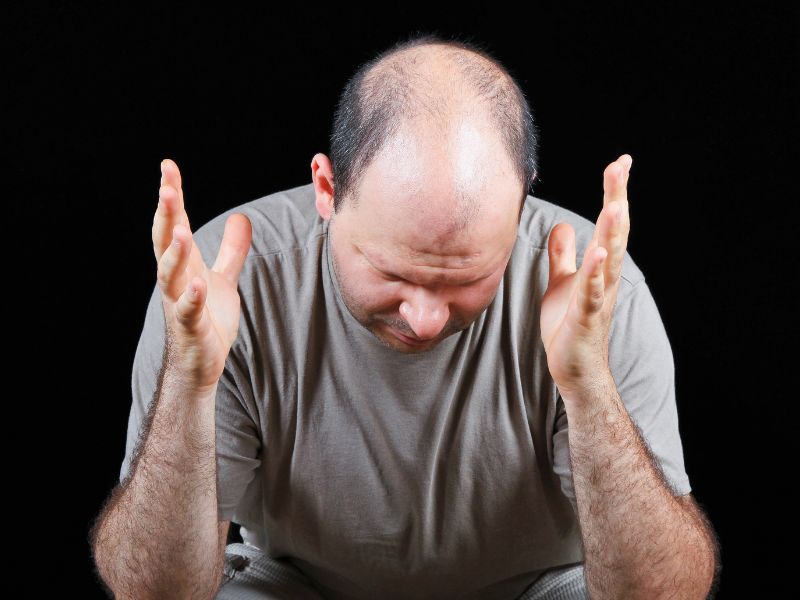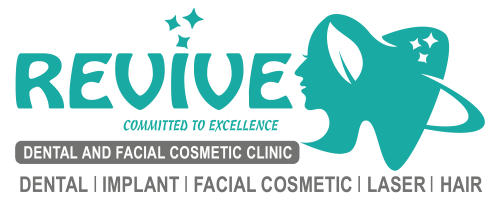The Link Between Stress and Hair Loss
The Link Between Stress and Hair Loss
Hair loss is the most common concern affecting many people, particularly younger ones. If you're reading this, you might be dealing with hair fall yourself. Don’t worry—this blog will help you understand how stress contributes to hair loss, the different types of stress-related hair loss, and effective solutions to encourage healthy hair growth.
How does Stress affect Hair Loss?
Stress, whether emotional or physical, injury or anxiety, is known to be a significant factor in hair loss. When stressed, your body produces hormones like cortisol, which can interfere with the regular hair growth process.

This interference can result in more hair loss and thinning.
Types of Stress-Related Hair Loss
Telogen Effluvium
Telogen effluvium is one of the most common types of stress-related hair loss. It occurs when significant stress triggers many hair follicles to enter the telogen (resting) phase prematurely. As a result, you may experience excessive hair shedding, especially when washing or brushing your hair. This condition usually presents as diffuse thinning across the scalp rather than in specific areas.
The good news is that telogen effluvium is often temporary. Once the stress is managed, hair growth typically resumes within 6 to 12 months. Maintaining a healthy lifestyle, managing stress through relaxation techniques, yoga, and eating a balanced diet can help speed up recovery.
Alopecia Areata
Alopecia areata is an autoimmune condition where the body's immune system poorly attacks hair follicles, causing round patches of hair loss. While stress alone doesn’t cause alopecia areata, it can trigger or exacerbate the condition in those who are predisposed to it.
Treatment for alopecia areata may involve corticosteroids to reduce inflammation and immune response. Consulting with a dermatologist is very important for managing this condition effectively.
Trichotillomania
Trichotillomania is a psychological condition where individuals have an irresistible urge to pull out their hair. This behavior is often a coping mechanism for dealing with stress or anxiety, leading to noticeable hair loss in affected areas.
Addressing trichotillomania often requires a combination of psychological therapy, such as cognitive-behavioral therapy (CBT), and stress management techniques. Taking help from a mental health professional can be beneficial in managing this condition.
Is Stress-Related Hair Loss Permanent?
The permanence of stress-related hair loss depends on the type and severity of the condition. Telogen Effluvium is generally reversible, and hair growth usually returns once the stress is managed. However, persistent stress or repeated episodes can prolong the issue. Alopecia Areata can sometimes be permanent, but many people experience partial or complete regrowth with appropriate treatment.
Early detection of hair loss and getting treated early could improve the chances of successful regrowth. Trichotillomania can lead to permanent hair loss if the behavior continues over an extended period without intervention. Addressing the underlying psychological issues is essential for preventing long-term damage.
Encouraging Hair Growth
To support healthy hair growth and minimize stress-related hair loss, consider the following tips:
- Manage Stress: Incorporate stress-reducing practices into your daily routine, such as meditation, exercise, or yoga. Finding effective ways to handle stress can help relieve its impact on your hair health.
- Maintain a Healthy Diet: Eating a proper balanced diet rich in vitamins and minerals can promote good hair health and overall well-being.
- Avoid Hair Damage: Minimize the use of harsh hair products and avoid excessive heat styling or chemical treatments. Gentle hair care can prevent additional stress on your hair.
- Consult a Specialist: If you’re experiencing significant hair loss or have concerns about stress-related conditions, consult a hair specialist or dermatologist. They can provide personalized advice and effective treatment options.
- Consider Hair Transplantation: Hair transplant procedures can offer a more permanent solution for persistent or severe hair loss.
Conclusion
In summary, while stress can seriously impact your overall hair health and contribute to hair loss, understanding the types of stress-related hair loss and effective treatment plans can lead to positive outcomes.
If you’re struggling with hair loss, schedule a consultation with our expert at Revive Dental & Facial Cosmetic Clinic for the best hair transplant in Rajajinagar. We suggest the treatment options that best suit you to regain confidence and support your hair growth journey.
Book Appointment Now
- Call Us : 762 487 1212 or
- Send Email : [email protected]
